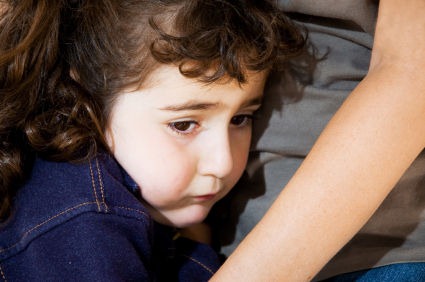Anxiety Disorders in Children
Table of Contents
Why we get Anxious?
Anxiety most commonly is a side result of accumulated stress. Anxiety is naturally a human response, and it plays a vital biological role: It’s an alarm that’s switched on every time we become aware of a threat or danger. When the mind and body react, physical sensation is felt like a rapid heartbeat, dizziness, difficulty breathing, and shaky or sweaty feet and hands. These feelings are brought upon by hasten of adrenaline and additional stress hormones that make ready the body to make a fast escape from danger.
This reaction takes place immediately. However, it normally consumes a few seconds longer for the cortex to register the circumstance and ascertain if the threat exists, and if so, how to tackle it. After the cortex sends the signal that all is clear, the fight-flight reaction is put off and the nervous system calms down. Recent studies show that media plays a big role in escalating anxiety. It is proved that media coverage of crises and disasters can cause anxiety in both children and adults.
Anxiety Disorders
Anxiety disorders are one of the most typical mental health conditions in children. There are various kinds of anxiety disorders, with symptoms that differ. However, they all have one similar trait—prolonged, intense anxiety that is not proportional to the current circumstance and interferes with one’s daily happiness and life.
Anxiety disorder symptoms can come on abruptly or can build in small stages and linger. In most cases worry forms a feeling of condemnation and disaster that appears to emerge from nowhere. Children with anxiety disorders may not even be aware of what’s producing the worries, emotions, and feelings they have.
Anxiety Disorders In Children Include:
- Obsessive compulsive disorder. For a child with OCD, anxiety takes the mode of compulsions and preoccupying thoughts excessively.
- Generalized anxiety. With this ordinary type of anxiety disorder, children become uneasy often about a number of things, like the health, school, or family members safety, and even the future in common. Sometimes they can imagine of the worst that could take place. Together with dread and worry, children may possess physical symptoms like stomachaches, headaches, tiredness or muscle tension. These worries may make them avoid social activities or miss school. Worries can feel like a load with this kind of anxiety, making life seem to be overpowering or uncontrollable.
- Phobias. These are extreme distress of particular situations or things that are not intrinsically risky, like dogs, heights or taking a ride in an airplane. Phobias normally result in people avoiding the things they are afraid of.
- Social anxiety. This kind of anxiety is caused by uttering in front of others or social circumstances.
- Panic attacks. These incidents of anxiety can take place for no reason at all. Within the limit of a panic attack, a child naturally has intense and abrupt physical symptoms that may involve shortness of breath, a pounding heart, numbness, tingling sensations or dizziness.
- Posttraumatic stress disorder. This kind of anxiety is an outcome of a shocking experience. The Symptoms involve nightmares, flashbacks, fear, and keeping out of the way traumatic incidents that brought upon the anxiety.
What Causes Anxiety Disorders
Professionals don’t know specifically what brings about anxiety disorders. A good number of issues seem to be the cause, among them brain biochemistry, genetics, an overactive fight-flight reaction, Life situations that stressful, and behavior that are learned.
A child having a family member affected with an anxiety disorder has a higher chance of having one. This may be as a result of genes relationship.
Events that happen in a child’s life can also be a major cause of anxiety disorders in child age, or as life goes by. Children, who have been abused before, are also more likely to be affected by anxiety.
Signs & Symptoms
Here are some of the signs and symptoms of anxiety disorders in children:
- Worrying excessively in most week days, for weeks on end
- Having difficulties sleeping at night or feeling sleepy most of the time during the day
- Fatigue or restlessness when waking up
- Concentration troubles
- Irritability
It is of great relief to know that therapists and doctors today know anxiety extensively than ever before, and they can assist children to get better with treatment. Ensure that you see a professional mental health doctor if you find out that your child suffers from anxiety disorders.
